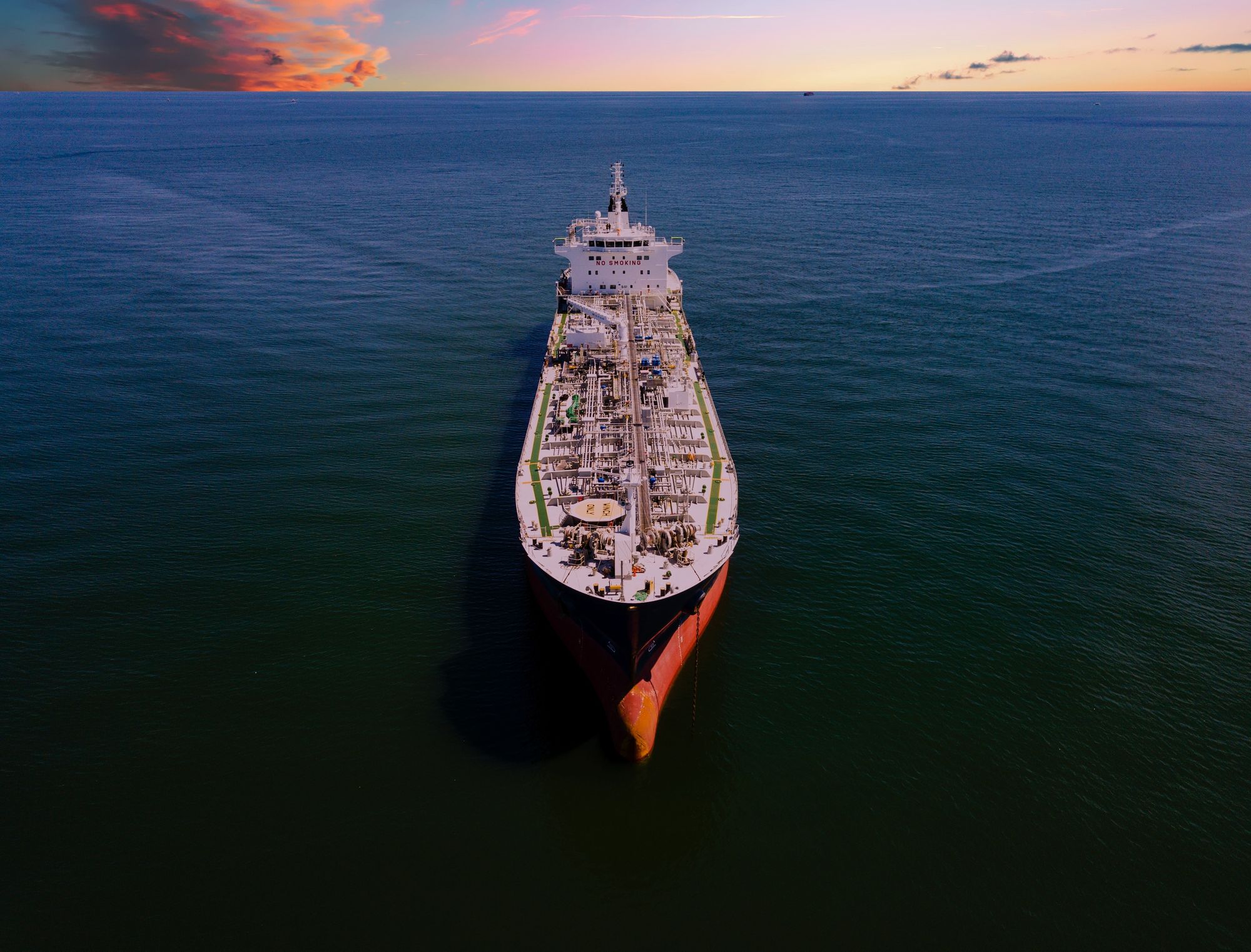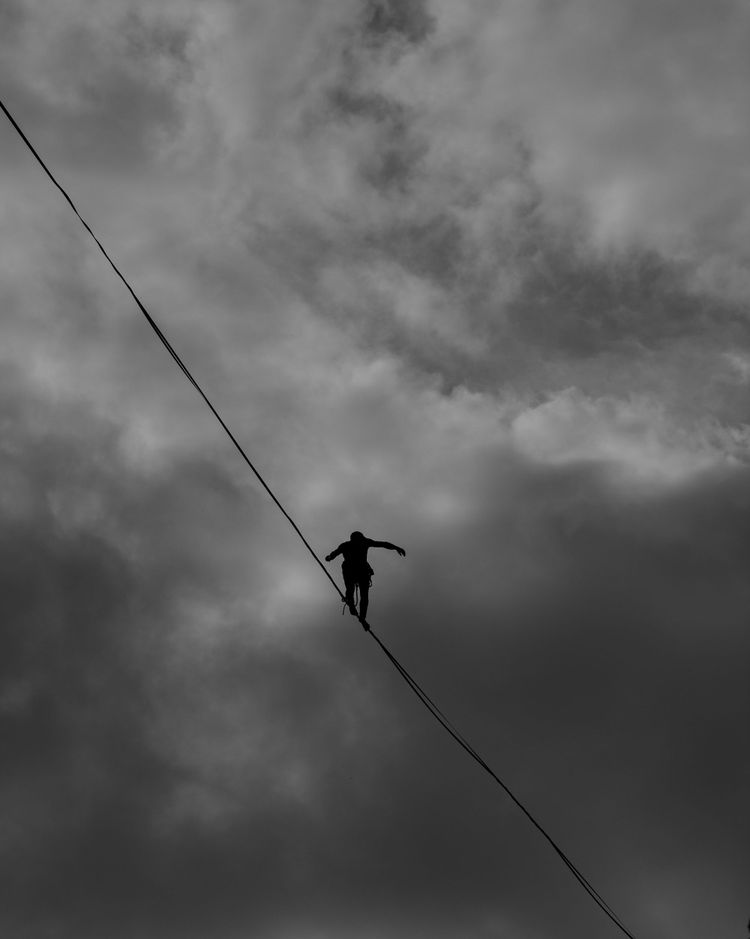Systems

As our species seemingly sleepwalks towards a series of treacherous cliffs, I wonder about our ability to change course, not to address and navigate the cliffs, but to turn around and walk away. We ride on our rail of technological progress without considering the tradeoffs it forces upon us. By abstracting ourselves away from the world, we can hardly say we have become more human. In reality though, we do not have a brake pedal to press. Our systems—those rules and enforcements which govern everything from foreign affairs to economics to interactions on the street—function outside of our control and prey on our human tendencies for their survival and growth. They tie us in financial and diplomatic knots which leave us no choice but forward. They create problems—war, inflation, or simply an empty bank account—which only their own furthering can solve.
From the utterance of the first word, at the instant when socialized technology was first requisite for survival, it burrowed its way deep into our skulls and began its parasitic evolution. In a mere few thousand generations, while its hosts have not evolved a step, the systems have exploded beyond human comprehension. And still we cannot conceive of anything but their development, such is the strength of their coercive, Darwinistic grip. As long as even a single human desires even a single grain of rice more than their neighbor, then there will be no end to technological growth. To steal, to conquer, to defend, to protect, to prevent, to predict, to control; as long as even a single impulse is felt by a single human, then there will be no end. We mere animals cannot hope to stop the techno-psychological freight train through our souls. It will crush us to dust with every weapon imaginable in time, only to mold us in its forge again. Not a mind has gone uninfected in a thousand generations, and not a mind ever will again.
The systems have been strained this stressful decade. Many sorrowfully mourn the "failure" of our systems to save us from the public health and economic disasters wrought by the pandemic. However, if we understand the systems' aim to not be our furthering but theirs, then this decade has so far been one of resounding success. For through tension and turmoil, we have not turned away from the systems but instead have leaned in. Modern fiscal theory, foreign policy, and digital technology have been our sole saviors in our most dire hour.
And supposing our years of difficulty are not yet at an end, and systems begin to fail under mounting pressure, it will hardly be their end. Just as the mass extinctions of the past did not destroy life itself but instead freed niches for new, temporarily-accelerated evolution, system collapses prepare our shared consciousness for the rise of new systems. For just as life itself is nearly impossible to eradicate, our most ingrained systems—language, property ownership, group social dynamics, etc.—cannot be extinguished by a mere war or even civilizational collapse. If even bacteria remain, life will rise again to stunning levels of complexity.
In our intense fixation on the individual, we believe that, should we be surpassed, in the posthuman sense, it shall be by a tangible, individual artificial life form who is our superior. However, we fail to realize that we have already given rise to artificial life in the form of systems which govern and control even demigod dictators. Sure, they are parasitic in nature and, therefore, not wholly independent, but that is hardly uncommon among organic life. They are fed by our own efforts, which cannot be halted due to our own dependence on systems to mediate our experience of the world against and alongside those of our peers. With every passing year the systems advance not only further beyond our understanding, but also faster than our perception, as they transition into the realm of the digital, where they may dictate a world of hyperreality.
My own anxieties at the trajectory of our lives is due at least in part to the conflict between human and system. Liberalism fails to recognize that the individual is not free so long as they are under the influence of systems, which affect not only their actions and opportunities, but also their very patterns of thought through language. To be completely free is a hopeless pursuit, as we cannot even imagine life without systems, nor would we survive without them. Our relationship with systems is therefore a symbiotic one, albeit symbiosis filled with conflict. The future at times seems bleak for individuals because much of our freedom, time, and energy will be inevitably ceded to systems which aim for their own benefit, not ours. However, systems too are handicapped by their own dependence on us, which forces them to consider us, or—at the very least—to keep us alive.
Systems craft problems—land disputes, values clashes, love triangles, climate change—and then limit our options for solving them by cracking the door for repercussions. The nation which avoids war over disputed land may soon see itself challenged at its borders again. The religion which does not defend its values must fear erosion. The lover who approaches a triangle bluntly may be ostracized from a friend group. Drastic moves against climate change would stress many with the pains of reduced quality of life. These limits serve to prevent us from backing out of systems by creating monstrous opportunity costs for doing so. Without widespread self-sacrifice, the only option is to press forward, further developing and strengthening the systems to solve the problems they create. Eventually, a system is either stressed to the point of collapse or becomes so ingrained into our minds that it achieves immortality.
Of course, we humans push and pull on systems, steering them along a rocky shore. But we are like swimmers alongside a tanker: Only with the most coordinated and persistent effort can we even move it an inch. The sheer scale of our population statistically neutralizes our differing opinions, experiences, and worldviews, stripping us to only the core of our animal humanity—concerned with self, community, and belonging. Perhaps a belief structure so galvanizing and unifying can bring us to steer the ship again, but nothing can bring it to a halt, for the resulting suffering would be sufficient to convince someone to turn the keys again, to take advantage of a people’s anger, to exploit a loophole, to steal something, to get a leg up. Ultimately, most of the time we can only hope to hang on to the hull as we sail deeper into open water, farther away from a systemless shore.

The systems will take us where they may. To oblivion, to salvation, or—more likely—to lands unknown, unfulfilling, unfree, unfair, and unequal, but comfortable and (sometimes) safe. We cannot even imagine the systems of tomorrow, just as 500 years ago one could not imagine what we call the economy. They will shape us and mold us into effective contributors towards their aims of growth long after we have attained the ability to create a “post-scarcity utopia,” supposing we have not already attained and ignored that power. Perhaps it is wise to just climb aboard and enjoy the ride. Our ship of systems scares me, but the ocean below terrifies me more.




